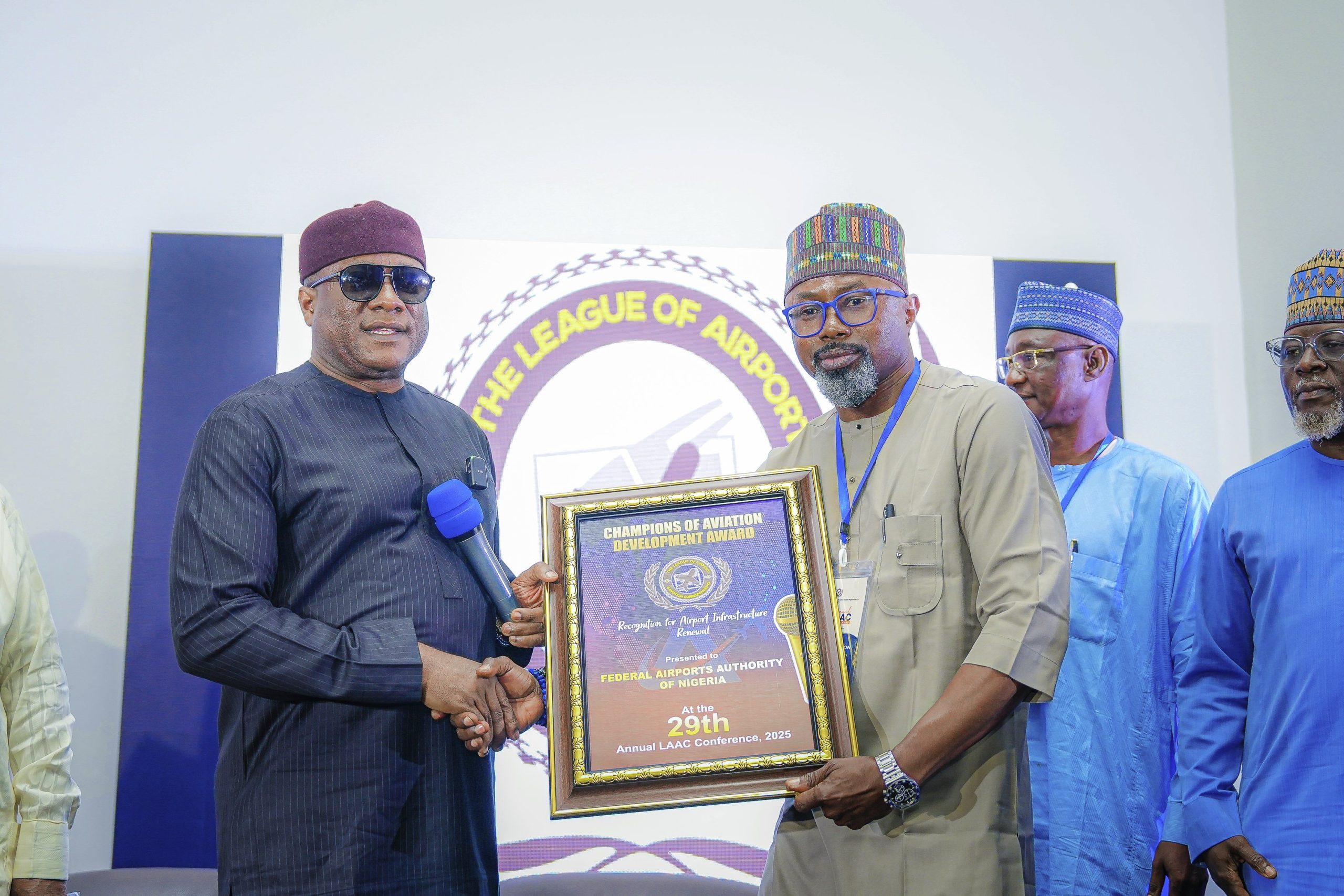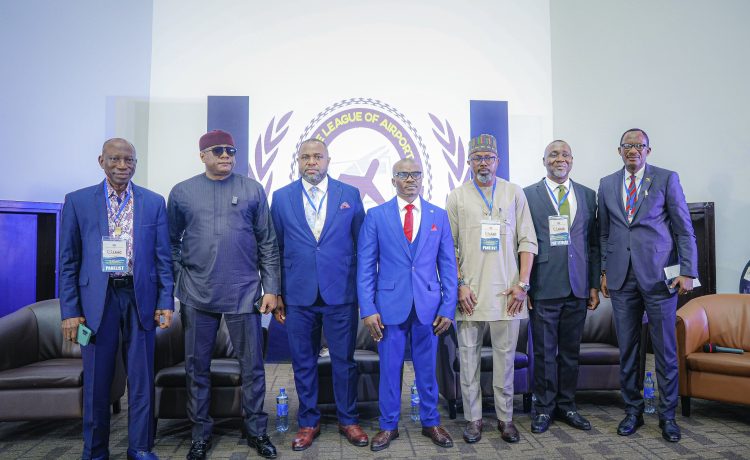Written by Phebean Ibizugbe
The future of Nigeria’s aviation industry hinges on bold reforms and smarter financing models, according to top players who convened in Lagos for the 29th Annual Conference of the League of Airport and Aviation Correspondents (LAAC) in August 2025.

The high-level gathering brought together airline executives, aviation regulators, cargo handling managers, financiers, and other industry leaders to discuss the theme: “Financing Aviation in Nigeria: The Risks, Opportunities and Prospects.”
In his presentation, Mr. Bismarck Rewane, Chief Executive Officer of Financial Derivatives Company Limited, painted a stark picture of the sector’s challenges. He disclosed that the country lost $3.5 billion in aviation revenue between 2020 and 2022, a setback he attributed to weak infrastructure, fragmented operations, and poor planning. Domestic passenger traffic dropped to 11.5 million in 2024, marking a second consecutive year of decline—a sign, he warned, that airlines are struggling while passengers are losing faith due to delays, cancellations, and inefficient services.
”People are feeling, people are hungry, people are angry, and people are upset. The economy is passing through the worst of the reform adjustment process. Rarely do people go to cooking, driving, low-income countries like China.
”The high-income world is sensitive to the current long-term performance, and inflation has been on a downward trend since March, but it is still only higher than 22%. Fuel cost at 865 naira. In the last few days, NNPC increased the price of petrol to 925. So it is going to be all over the place in a few years.”
Rewane described the industry as “deeply fragmented,” with overlapping regulatory roles and siloed operations among airlines, maintenance firms, and regulators, resulting in waste and safety concerns. He noted that only four airports handle between 92% and 96% of total passenger traffic, while market control remains concentrated—five out of 23 active domestic airlines account for 75% of market share.
He further criticized the proliferation of state-owned airlines and airports, questioning their commercial viability. Citing examples such as Ibom Air (Akwa Ibom, 2019), Cally Air (Cross River, 2021), and Enugu Air (Enugu, 2025), alongside five new state-built airports between 2019 and 2024, he argued that many of these ventures fail to attract sustainable demand.
Drawing comparisons, Rewane contrasted Ethiopian Airlines’ $1.5 billion profit with South African Airways’ $19.8 million profit in 2014, noting that successful carriers benefit from modern fleets, diversified revenue streams, and efficient hubs—advantages Nigerian airlines often lack. Instead, he said, local carriers depend on government bailouts, operate in low-demand markets, and suffer from mismanagement.
”So international travel arrivals are forecast to rise by 5% to 1.5 billion passengers in 2025. Traveler may includes business professionals, tourists, vacationers, students, traders, and medical patients. Government officials, pilgrims, and those who miss their friends and families. Airline profits are on the rise and projected to be $36 billion with a 3.7% profit margin.
”This is $36 billion worth of profits for the global aviation industry. This is one of the best, but only half of it happens across all industries. Other industries are doing much better.”
His recommendations included industry consolidation, transforming Lagos and Abuja into strong competitive hubs, ensuring policy consistency to attract investors, and urging government to regulate rather than operate airlines and airports. “Stop building airports and running airlines—fix the system, not just the terminals,” he advised.
Earlier at the conference, Mrs. Mary Olowo-Sokeye, Chief Financial Officer at InterGuide Group, speaking on behalf of Dr. Gabriel Olowo, President of Sabre West and Central Africa, stressed the need for airlines to move away from outdated funding models. She urged operators to adopt financing strategies that reflect Nigeria’s volatile economic climate, improve liquidity, and reduce operational risks.
“Sustainable aviation finance must balance risk with long-term viability,” Olowo-Sokeye said, calling for greater regulatory support to help Nigerian airlines access global credit facilities and modern financial tools.
Both speakers agreed that without decisive changes in financing, governance, and infrastructure, Nigeria’s aviation sector risks remaining stagnant while competitors across Africa take flight.







